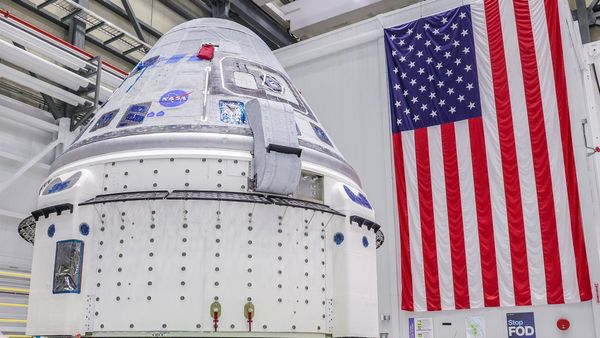
To put it bluntly, minority neurotypes like ADHD, Autism, Dyslexia and Dyspraxia (Neurodivergents, or NDs) are used to division. Having been raised in a context of subtle exclusion, where some of us were explicitly told "you don't fit in" but all of us experienced dis-ease with our Neurotypical (NT) peers, we knew. NDs grow up observing the embedded codes in our societies. We can see them because they are not natural to us. We observe, for example, the tendency to tell people what they want to hear even though it is untrue or unkind in the long run. We note the differences in eye contact, rituals of over politeness, discussing everyday chores as if they were interesting anecdotes. We also differ within our group. Bouncy energetics have to avoid bombarding hypersensitivities, diligent rule followers have to avoid chastising inadvertent grammar and spelling errors. In the past ten years, from our smaller enclaves of Dyslexia, ADHD, Autism and other specific labels, we’ve all come into the neurodiversity movement as one group. And we’ve discovered that we have more in common than these gripes, we are more overlapping than we knew, and our common purpose is shared. Flexible workplaces that play to a wider range of strengths and accommodate our cognitive struggles as bona fide disabilities for example. We don’t always get on. There are schisms and disputes over terminology, the edges of the social and medical models of disability and who should be included as a neurodivergent. Sometimes we need to take time out from that. But broadly speaking, despite our often-opposing perspectives and preferences, we’ve collaborated to create a sea-change in how society and workplaces think about us. We’ve argued hard for diversity and we’ve been heard. Now, when the world needs us all to galvanize our resources towards unity, isn’t that a wonderful metaphor?
Workplaces Are Microcosms Of Society
Whatever your role in business and commerce right now, your employees and colleagues are feeling the pinch of our political climate. Have you noticed how no one is getting what they want? Neither left nor right, Brexiteer or Remainer, populist or centrist, pragmatist or idealist. In the world we are seeing evidence of escalating tensions and terrifyingly disparate interpretations of the truth. Some people’s encroachment on civil liberties is other peoples' essential safety measure. One countries' bid for freedom is another's historical abandonment. The human race is fractured, disagreeable, arguing over the right path for tackling global crises in climate, inequality, politics. The answer is not clear and the escalation looks unstoppable right now. Yet our workplaces are one of the few times we "mingle" with those who do not fit our demographic silos. The pattern of division and difference of opinion matches these macro divisions: one person's respectful distance is another's standoffish slur, on person’s passionate leadership is another’s bullish ignorance of the risks. So while we’re all wondering what to do, consider what a wonderful opportunity we have to role model justice, collaboration and peace at work.
In psychology, when both parties feel like the victim but act like the aggressor this is usually fatal for the relationship. Dr John Gottman calls criticism, contempt, defensiveness, stonewalling the “four horsemen of the apocalypse” in relationships. Yet, in the workplace, psychologists, HR, inclusion professionals and advocates have had to learn to overcome these to make progress, so our experience is deeply human and helpful in these troubled times. Let’s lean in to it.
Reversing Escalating Conflict
Escaping an escalation of conflict is not easy in any context. When we have been misunderstood once, our next behaviors can be viewed through a tinted lens. Like the manager who googled "Autism" to find a random article on violence and then wrote things like "lingers threateningly in doorways" in an HR report when they could have more accurately observed "Autistic person awkward about physical space cues" and not mentioned it. Like the colleague who assumed typos meant that their Dyslexic colleague didn't respect them and began talking about him as rude and stand offish to other colleagues, but in reality the Dyslexic person didn't think their colleague would mind typos and actually it was an indication of trust and informality.
When misunderstandings and negative interpretations of behavior escalate, it can be an intense emotional rush. Sometimes we seek it, in a strange self-destructive "moth to the flame" manner. Sometimes it crushes us and causes shut down. Those in our orbit are frightened to reach in, frightened to try and help in case they draw ire. For all humans engaged in these battles for being "right" the thrill seeks a crescendo and we become motivated for a conclusion. In ND exclusion work, this is usually the end of someone's job, or a tribunal. In politics this is usually a dramatic change of governing systems, an overthrow or a landslide election. Finding a way back from contempt, to respect, takes a lot of work. These are the terms:
1. All parties have to be heard. You need safe spaces to express without penalty. Fear of reprisals undermines honest communication.
2. All parties need to want reconciliation. If one party does not, a swift exit is better than dragging it out, which has knock on effects for wider culture.
3. All parties need some sense of greater good to which they belong, like the needs of joint clients, an innovative vision. If you are struggling across political divides at work right now, find these.
4. We have to accept some nuance of compromise. It's not going to work out perfectly for us. We're not going to be 100% vindicated. We might only move from nemesis to polite professionalism. We don't have to be best friends with our enemies, but to work together we do need to agree transparent rules of engagement and we can put in boundaries when these aren’t followed.
5. It's okay to take time out. Jostling and negotiating over values and beliefs is hard work. You can create a boundary, some space, some distance while you work things out. But be careful about using this time to gossip with your allies and adding fuel to your fire. Choosing to debrief with those who will challenge you is healthy.
Neurodiversity Is A Microcosm Of Humanity
We are a species defined by specialists and generalists, a blend of diverse talents and personality types, not all of which are benign and not all of which are benign in varying contexts. Humanity is punctuated with moments where we define ourselves by in and out groups, by those who are not like us or like us. In Neurodiversity, we’ve long argued for the evolutionary power of seeking collaboration across these boundaries. As Judy Singer, the originator of the ND concept, explains in this timely piece for a Russian Autism journal, inclusion is an ongoing, leaderless discourse:
"We promote, first of all, the idea that everyone has the right to a place in society. It's important to understand that the neurodiversity movement is what might be called discourse. The movement has no leader or representative. Everyone who talks about neurodiversity, whether they like it or not, becomes part of this movement. Talking about it creates the social pressure needed for change. Everyone can speak out and contribute. People who criticize the movement also, of course, have the right to vote. This is a dialectical process, when someone expresses his idea (thesis), it spreads, generates opposition to himself, people begin to say that it does not work, it is bad, they argue, and then all this is consolidated into a new thesis. And it all repeats itself. This is what happens with the neurodiversity movement. We always have an opposition, there is a dialogue with it, and something new comes out of it."
What I love about Singer's quote is the acknowledgement that within a group there will be dissent. In the past years, we've grown too used to our silos and echo chambers, we've learned to dissociate with our fellow citizens who disagree politically, we've lost the ability to agree to disagree respectfully. We've become unable to accept nuanced opinions. We need these skills back, urgently, if we are to weather the storms approaching the world. Our workplaces provide the perfect context for us to practice the psychology of overcoming division at the micro level, and this provides the culture for overcoming division at the macro level.
In our jobs we’ve worked side by side with colleagues throughout this polarizing period, let’s hold that dear as we come together to face the geopolitical threats of warfare and economic destabilization. No one in your workplace is immune to the added layers of existential stress that is defining this period of human history. Acknowledge the angst and provide welcoming, open spaces where we have the safety to overcome our internal divisions. The next generation need us to put aside our petty differences and focus on providing a future for work and society at large. Now is the time to focus on what binds us together.







